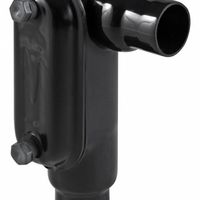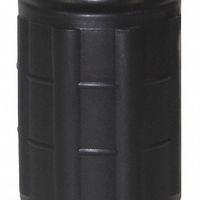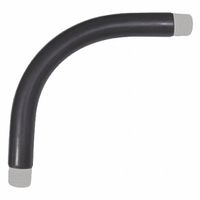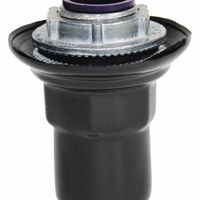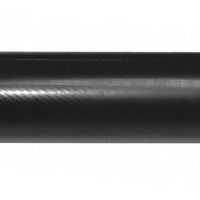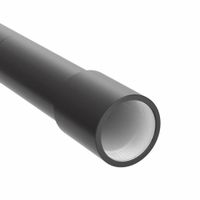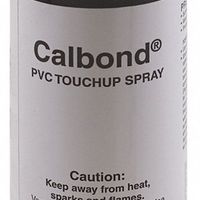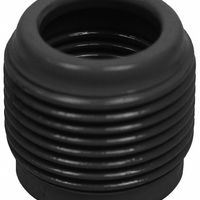Call +(254) 703 030 000 / 751 483 999 / 721 704 777
- Home
- Electrical
- Conduit Fittings Strut Channel Framing
- Conduit Fittings
- Pvc Coated Metal Conduit Fittings
.....Read More
Frequently Asked Questions
What is PVC-coated metal conduit used for?
PVC-coated metal conduit is used for protecting electrical wiring in various environments. It combines the strength of metal with the corrosion resistance of PVC, making it ideal for harsh or corrosive environments such as chemical plants, oil refineries, and outdoor installations. The metal conduit provides structural integrity and physical protection against impacts, while the PVC coating offers a barrier against moisture, chemicals, and other corrosive elements. This dual protection ensures the longevity and safety of electrical systems, reducing the risk of electrical failures and maintenance costs. Additionally, PVC-coated metal conduit is used in areas where compliance with specific safety standards and regulations is required, ensuring that installations meet industry codes.
How does PVC-coated metal conduit provide corrosion resistance?
PVC-coated metal conduit provides corrosion resistance through a combination of its material properties and protective layering. The metal conduit, typically made of galvanized steel or aluminum, offers structural strength and durability. However, metal alone is susceptible to corrosion when exposed to moisture, chemicals, or harsh environmental conditions.
The PVC (polyvinyl chloride) coating acts as a protective barrier that shields the metal from direct contact with corrosive elements. PVC is inherently resistant to moisture, chemicals, and UV radiation, making it an ideal material for preventing corrosion. The coating is applied uniformly over the metal conduit, ensuring that all surfaces are covered and protected.
This coating process involves several steps to ensure adhesion and effectiveness. First, the metal conduit is cleaned and pre-treated to remove any impurities or residues that might interfere with the bonding of the PVC. Then, the PVC is applied, often through a dipping or extrusion process, creating a seamless and continuous layer over the metal.
The thickness of the PVC coating is crucial for its protective capabilities. A thicker coating provides better resistance to abrasion and impact, which can otherwise expose the metal to corrosive agents. Additionally, the flexibility of PVC allows it to expand and contract with temperature changes, reducing the risk of cracking or peeling that could compromise the protective barrier.
Overall, the combination of a robust metal core and a resilient PVC coating ensures that the conduit can withstand corrosive environments, extending its lifespan and maintaining the integrity of the electrical systems it protects.
Is PVC-coated metal conduit suitable for grounding applications?
Yes, PVC-coated metal conduit is suitable for grounding applications. The metal conduit, typically made of galvanized steel, provides a continuous conductive path that can be used for grounding. The PVC coating offers additional protection against corrosion, moisture, and chemical exposure, which can enhance the durability and longevity of the conduit in harsh environments.
For grounding purposes, the metal conduit must be properly bonded and connected to the grounding system to ensure electrical continuity. This involves using appropriate fittings and connectors that maintain the integrity of the grounding path. The National Electrical Code (NEC) and other relevant standards provide guidelines on the installation and use of conduits for grounding to ensure safety and compliance.
While the PVC coating itself is non-conductive, it does not interfere with the grounding capability of the underlying metal conduit. However, care must be taken during installation to avoid damaging the coating, as exposed metal can lead to corrosion over time, potentially compromising the grounding path.
In summary, PVC-coated metal conduit is a viable option for grounding applications, provided it is installed correctly and in accordance with applicable codes and standards.
What are the benefits of using PVC-coated metal conduit in industrial settings?
PVC-coated metal conduit offers several benefits in industrial settings:
1. **Corrosion Resistance**: The PVC coating provides a protective layer against corrosive elements such as chemicals, moisture, and salt, making it ideal for harsh environments.
2. **Durability**: The combination of metal and PVC enhances the conduit’s strength and longevity, ensuring it can withstand physical impacts and environmental stressors.
3. **Electrical Insulation**: PVC acts as an insulator, reducing the risk of electrical shocks and short circuits, thereby enhancing safety.
4. **Fire Resistance**: PVC-coated conduits are often fire-resistant, providing an additional layer of protection in environments where fire hazards are a concern.
5. **Chemical Resistance**: The PVC coating is resistant to a wide range of chemicals, making it suitable for use in chemical plants and other industrial facilities where exposure to corrosive substances is common.
6. **Ease of Installation**: The smooth surface of PVC-coated conduits facilitates easier pulling of wires, reducing installation time and labor costs.
7. **UV Protection**: The PVC coating offers protection against UV radiation, making it suitable for outdoor applications where exposure to sunlight is a factor.
8. **Aesthetic Appeal**: The coating can be colored to match specific design requirements, improving the visual appeal of installations.
9. **Cost-Effectiveness**: While initially more expensive than non-coated conduits, the reduced maintenance and longer lifespan can lead to cost savings over time.
10. **Compliance with Standards**: PVC-coated conduits often meet industry standards and regulations, ensuring compliance with safety and quality requirements.
These benefits make PVC-coated metal conduit a preferred choice for protecting electrical wiring in demanding industrial environments.
How does PVC-coated metal conduit protect conductors from damage?
PVC-coated metal conduit protects conductors from damage through several mechanisms. Firstly, the metal conduit, typically made of steel or aluminum, provides a robust physical barrier against mechanical impacts, crushing, and abrasion. This metal layer ensures that the conductors inside are shielded from external forces that could otherwise cause physical damage.
Secondly, the PVC coating adds an additional layer of protection. It acts as a corrosion-resistant barrier, safeguarding the metal conduit from environmental factors such as moisture, chemicals, and corrosive substances. This is particularly important in harsh or outdoor environments where exposure to such elements is common. The PVC layer prevents rust and corrosion, which could compromise the integrity of the metal conduit and, consequently, the conductors inside.
Moreover, the PVC coating provides electrical insulation. This reduces the risk of electrical faults, such as short circuits, by preventing accidental contact between the metal conduit and other conductive materials. The insulating properties of PVC also help in maintaining the integrity of the electrical system by minimizing the risk of electrical leakage.
Additionally, the smooth surface of the PVC coating facilitates easier installation and reduces friction when pulling conductors through the conduit. This minimizes the risk of damage to the conductors' insulation during installation.
Overall, the combination of a sturdy metal conduit and a protective PVC coating ensures that conductors are well-protected from mechanical, environmental, and electrical hazards, thereby enhancing the safety and longevity of electrical installations.
What types of fittings are used with PVC-coated metal conduit?
PVC-coated metal conduit typically uses the following types of fittings:
1. **Couplings**: Used to connect two lengths of conduit. They are available in straight or angled designs to accommodate different installation needs.
2. **Elbows**: Allow the conduit to change direction. They come in various angles, such as 45-degree and 90-degree, to suit different routing requirements.
3. **Connectors**: Used to join the conduit to boxes or enclosures. They ensure a secure and sealed connection, preventing moisture ingress.
4. **Straps and Clamps**: Secure the conduit to walls or other surfaces. They are designed to hold the conduit firmly in place while allowing for some movement due to thermal expansion.
5. **Bushings**: Installed at the ends of conduits to protect wires from abrasion. They provide a smooth surface for wires to pass through, reducing the risk of damage.
6. **Sealing Fittings**: Used in hazardous locations to prevent the passage of gases, vapors, or flames through the conduit system. They ensure the integrity of the conduit in explosive environments.
7. **Expansion Fittings**: Allow for the expansion and contraction of the conduit due to temperature changes. They prevent stress on the conduit system and maintain its integrity.
8. **Reducers**: Used to connect conduits of different sizes. They ensure a smooth transition between different diameters of conduit.
9. **Caps**: Used to close off the end of a conduit run. They protect the interior of the conduit from dust, moisture, and other contaminants.
10. **Adapters**: Facilitate the connection between different types of conduit systems or between conduit and other components.
These fittings are typically coated with PVC to provide corrosion resistance and ensure a long service life in various environmental conditions.
Can PVC-coated metal conduit be used in outdoor applications?
Yes, PVC-coated metal conduit can be used in outdoor applications. It combines the strength and durability of metal conduits, such as galvanized rigid conduit (GRC) or intermediate metal conduit (IMC), with the corrosion resistance of a PVC coating. This makes it suitable for environments exposed to moisture, chemicals, and other corrosive elements typically found outdoors.
The PVC coating provides a protective barrier that prevents rust and corrosion, extending the lifespan of the conduit in harsh conditions. It also offers additional insulation, which can be beneficial in preventing electrical faults. The metal core ensures structural integrity and protection against physical impacts, which is crucial for outdoor installations where conduits may be exposed to environmental stresses.
When using PVC-coated metal conduit outdoors, it is important to ensure that all fittings and connections are also corrosion-resistant and properly sealed to maintain the integrity of the system. Additionally, adherence to local electrical codes and standards, such as the National Electrical Code (NEC) in the United States, is essential to ensure safety and compliance.
Overall, PVC-coated metal conduit is a reliable choice for outdoor applications, providing a balance of durability, protection, and longevity.
